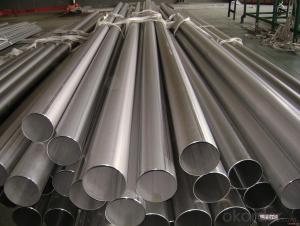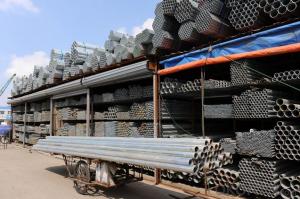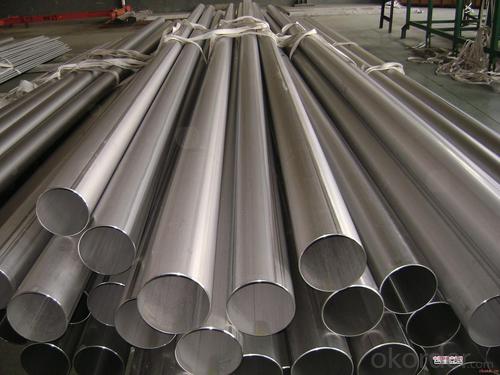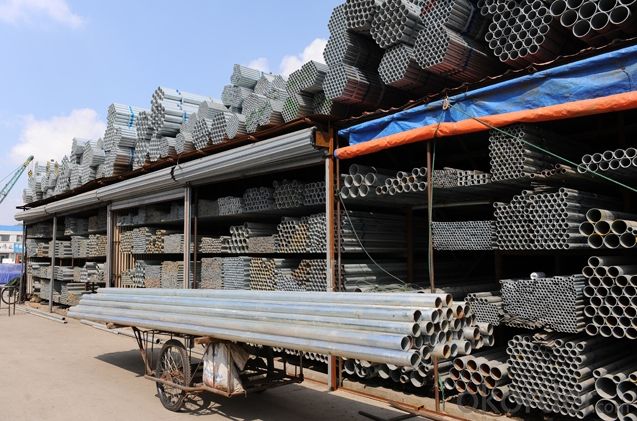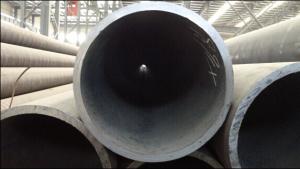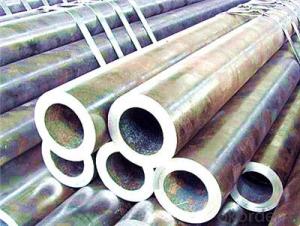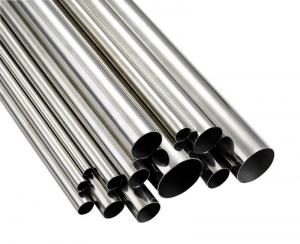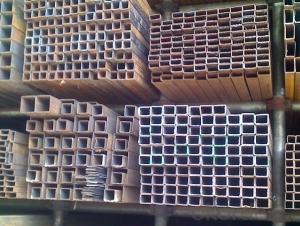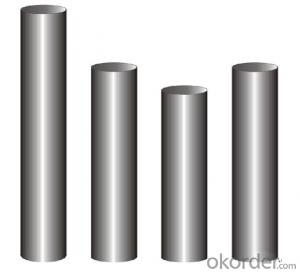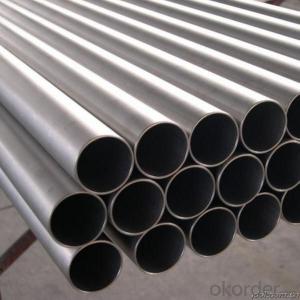Steels Manufacture Building Material with Good Quality from China
- Loading Port:
- Tianjin
- Payment Terms:
- TT OR LC
- Min Order Qty:
- 100 m.t
- Supply Capability:
- 1000 m.t/month
OKorder Service Pledge
OKorder Financial Service
You Might Also Like
1.Packaging & Delivery
Packaging Detail: | in bundles or as customer's requirement |
Delivery Detail: | Within 30days after receiving your deposit or copy of L/C |
2.Specifications
HRB400,HRB500 Steel Rebars
1.China direct supplier
2.Best service
3.Competitive price
4.Quantity assured
3.Product Description
Name | High Tensile Export Reinforcing Steel Bar ,Deformed Steel Bar ,HRB400B,HRB,46B,HRB500 Building Construction Material |
Standard | ASTM A615 /BS BS 4449 /GB HRB/ JIS G3112 |
Grade | A615 Gr40/60/75 BS 4449 Gr460,B500 GB HRB335,HRB400 ,HRB500
JIS G3112 SD390
|
Diameter | 6mm-40mm |
Length | 6-12m |
Technique | Low temperature hot-rolling reinforcing deformed steel rebar |
Tolerance | As the standard or as your requirement |
Application | Building, construction, road, bridge,etc |
Certificated | BV |
MOQ | 500tons per size steel rebar |
Packing details | Steel rebar packed in bundle or as your requirement |
Delivery | Within 30 days after deposit |
Payment | T/T or L/C |
4.Chemical Composition
Grade | Technical data of the original chemical composition (%) | |||||||
C | Mn | Si | S | P | V | |||
HRB400 | ≤0.25 | ≤1.60 | ≤0.80 | ≤0.045 | ≤0.045 | 0.04-0.12 | ||
Physics capability | ||||||||
Yield Strength(N/cm2) | Tensile Strength(N/cm2) | Elongation (%)
| ||||||
≥400 | ≥470 | ≥14 | ||||||
Grade | Technical data of the original chemical composition (%) | |||||||
C | Mn | Si | S | P | V | |||
HRB500 | ≤0.25 | ≤1.60 | ≤0.80 | ≤0.045 | ≤0.045 | 0.04-0.12 | ||
Physics capability | ||||||||
≥500 | ≥630 | ≥12 | ||||||
5. Theorectical weight
Diameter (MM) | Cross Sectional Area (MM2) | Theorectical Weight (KG/M) | Weight of 12M Bar (KG) | A Ton Contains 12M Bars (PCS) |
6 | 28.27 | 0.222 | 2.664 | 375.38 |
8 | 50.27 | 0.395 | 4.74 | 210.97 |
10 | 78.54 | 0.617 | 7.404 | 135.06 |
12 | 113.1 | 0.888 | 10.656 | 93.84 |
14 | 153.9 | 1.21 | 14.52 | 68.87 |
16 | 201.1 | 1.58 | 18.96 | 52.74 |
18 | 254.5 | 2 | 24 | 41.67 |
20 | 314.2 | 2.47 | 29.64 | 33.74 |
22 | 380.1 | 2.98 | 35.76 | 27.96 |
25 | 490.9 | 3.85 | 46.2 | 21.65 |
28 | 615.8 | 4.83 | 57.96 | 17.25 |
32 | 804.2 | 6.31 | 75.72 | 13.21 |
36 | 1018 | 7.99 | 98.88 | 10.43 |
40 | 1257 | 9.87 | 118.44 | 8.44 |
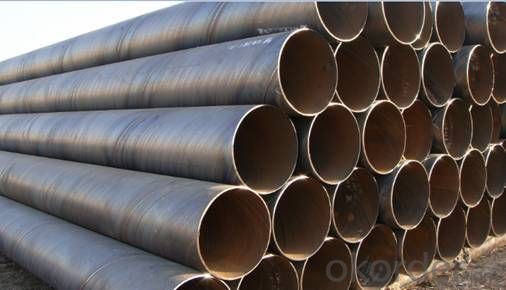
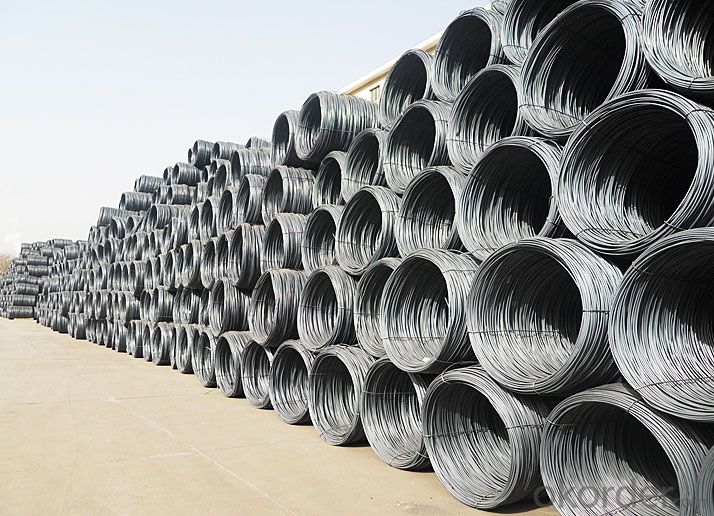
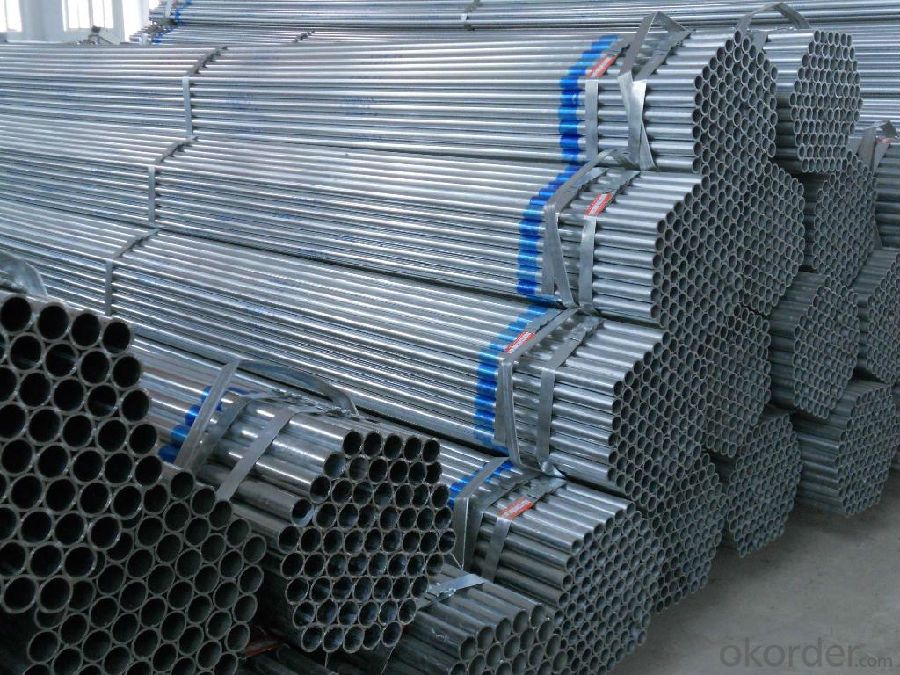
- Q: What are the different types of steel pipe fittings for industrial applications?
- There are several different types of steel pipe fittings commonly used in industrial applications. These include elbows, tees, couplings, unions, reducers, flanges, and caps. Each of these fittings serves a specific purpose in connecting and directing the flow of fluids or gases within a piping system.
- Q: Can steel pipes be used for underground culverts?
- Yes, steel pipes can be used for underground culverts. Steel pipes are commonly used for underground culverts due to their strength, durability, and resistance to corrosion. They provide a reliable solution for conveying water or other fluids underground, ensuring efficient drainage and water management systems.
- Q: What are the different methods of joining steel pipes?
- There are several different methods of joining steel pipes, including welding, threading, flanging, grooving, and using mechanical connectors.
- Q: Are steel pipes suitable for oil and petroleum applications?
- Yes, steel pipes are highly suitable for oil and petroleum applications. They possess excellent strength, durability, and resistance to corrosion, making them ideal for transporting and storing oil and petroleum products. Steel pipes can withstand high pressure and extreme temperatures, ensuring the safety and efficiency of oil and petroleum operations.
- Q: What are the different standards for steel pipe manufacturing?
- There are several different standards for steel pipe manufacturing, including the American Society for Testing and Materials (ASTM), International Organization for Standardization (ISO), and the American National Standards Institute (ANSI). These standards outline the specifications for various aspects of steel pipe production, such as dimensions, material composition, mechanical properties, and testing procedures to ensure quality and safety.
- Q: What are the different methods of protecting steel pipes from corrosion?
- There are several methods of protecting steel pipes from corrosion. One common method is coating the pipes with materials such as epoxy, polyethylene, or fusion bonded epoxy, which create a barrier between the pipe's surface and corrosive elements. Another method is cathodic protection, which involves using sacrificial anodes or impressed current to prevent corrosion. Additionally, applying corrosion inhibitors or using corrosion-resistant alloys for manufacturing the pipes can provide protection. Regular maintenance, including inspections and cleaning, is also crucial to ensure the ongoing protection of steel pipes from corrosion.
- Q: Can steel pipes be used for underground chemical injection?
- Underground chemical injection can utilize steel pipes. These pipes are widely employed across industries due to their durability, strength, and resistance to corrosion. For underground chemical injection purposes, steel pipes bring various advantages. They can endure high pressure and temperature, making them suitable for the transportation and injection of chemicals into the ground. Furthermore, steel pipes exhibit superb chemical resistance, guaranteeing that they will not interact with the injected chemicals and compromise the system's integrity. Nevertheless, it is crucial to select the appropriate grade of steel pipe that is compatible with the specific chemicals being injected to ensure optimal performance and longevity. Regular maintenance and inspections are also necessary to identify any potential corrosion or damage to the pipes, thus ensuring the safe and efficient operation of the chemical injection system.
- Q: Are steel pipes resistant to chemicals?
- Yes, steel pipes are generally resistant to chemicals. They have excellent corrosion resistance properties, making them suitable for transporting various chemicals in industries such as oil and gas, chemical processing, and wastewater treatment. However, the level of resistance can vary depending on the specific type of chemical and the grade of steel used. In some cases, additional protective coatings may be required to enhance chemical resistance.
- Q: How are steel pipes protected against internal scaling?
- Internal coating or lining is a process employed to safeguard steel pipes from internal scaling. This entails applying a protective layer on the inside of the pipe to prevent the formation of scales or deposits. Multiple techniques are utilized for this purpose. One prevalent approach is the application of epoxy coatings. Epoxy, a resilient and corrosion-resistant material, forms a continuous barrier on the pipe's interior. It effectively hinders the accumulation of minerals and other substances that contribute to scaling. Epoxy coatings are commonly sprayed or brushed onto the inner surface of the pipe and then hardened to create a durable and smooth finish. Cement mortar lining is another method used to protect steel pipes from internal scaling. This involves applying a layer of cement mortar to the pipe's interior. The cement mortar acts as a barrier against scaling and offers additional corrosion protection. This lining process is typically employed for large-diameter pipes utilized in water distribution systems. Polyethylene (PE) lining is yet another technique deployed to safeguard steel pipes against internal scaling. PE lining necessitates the insertion of a high-density polyethylene liner into the pipe. This liner acts as a barrier against scaling and enhances fluid flow by reducing friction. PE lining is frequently used in applications that require a smooth interior surface, such as oil and gas pipelines. Apart from these methods, regular maintenance and cleaning of the pipes can also aid in preventing internal scaling. This may involve using chemical cleaning agents or mechanical cleaning techniques to eliminate any deposits that have formed on the pipe's interior surface. Overall, safeguarding steel pipes against internal scaling is vital to maintain their efficiency and prolong their lifespan. By employing various coating and lining methods, along with implementing appropriate maintenance practices, the risk of internal scaling can be significantly diminished.
- Q: How does the price of steel pipes fluctuate?
- The price of steel pipes can fluctuate due to several factors, including changes in raw material costs, supply and demand dynamics, global economic conditions, and trade policies. For example, a rise in the cost of iron ore or other metals used in steel production can lead to an increase in the price of steel pipes. Similarly, a decrease in demand for construction or infrastructure projects can lower the demand for steel pipes, leading to a decrease in prices. Additionally, changes in trade policies, such as tariffs or restrictions on imports or exports, can also impact steel pipe prices. Overall, the price of steel pipes is influenced by various market forces and external factors, causing it to fluctuate over time.
Send your message to us
Steels Manufacture Building Material with Good Quality from China
- Loading Port:
- Tianjin
- Payment Terms:
- TT OR LC
- Min Order Qty:
- 100 m.t
- Supply Capability:
- 1000 m.t/month
OKorder Service Pledge
OKorder Financial Service
Similar products
Hot products
Hot Searches
Related keywords
